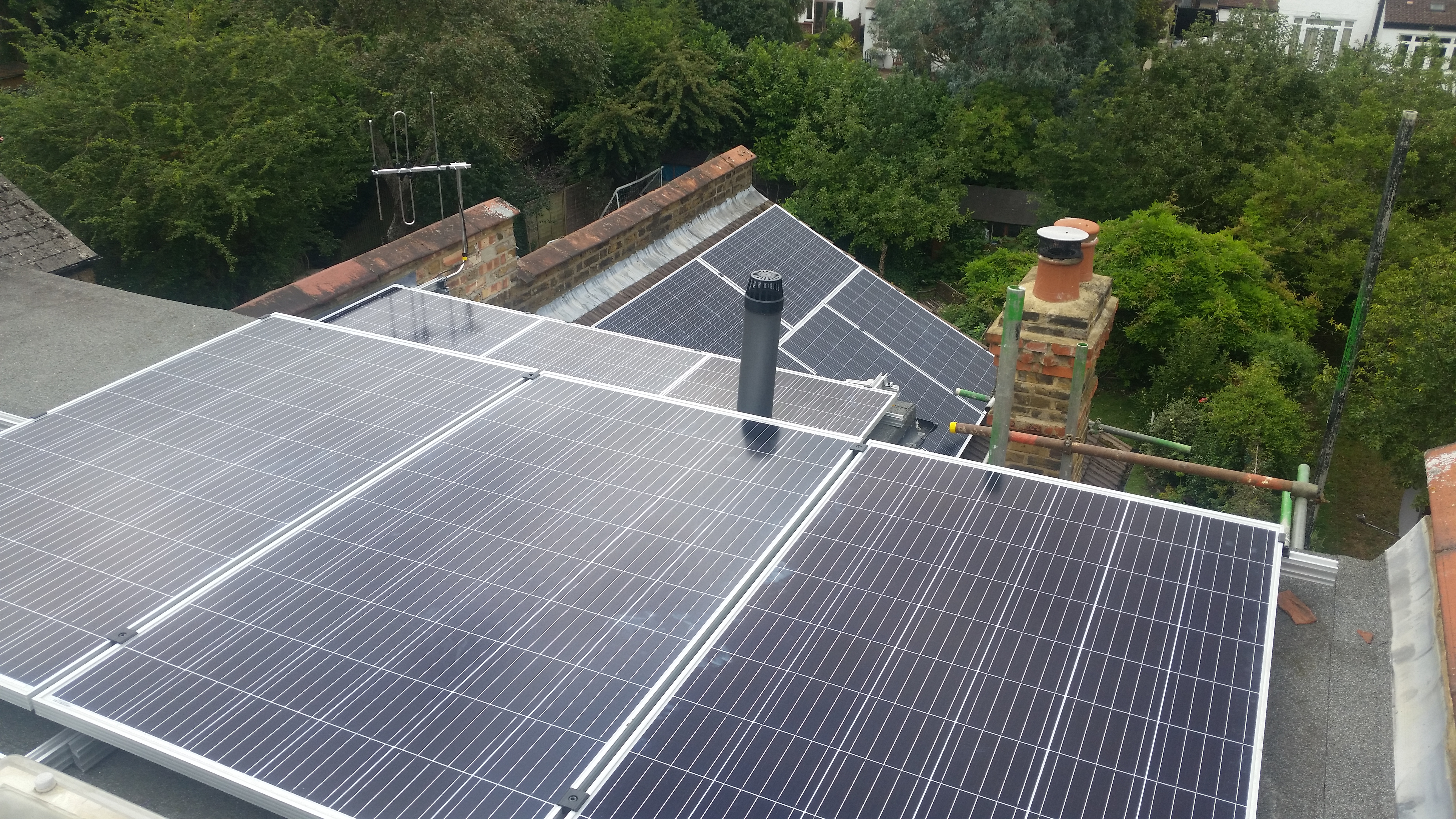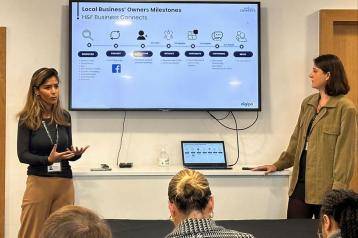
Solar panels fitted on the roof of Brian Thresh's retrofitted, green energy home in W12
Want to play your part in tackling the climate emergency?
For homeowners in H&F, a great way to cut carbon emissions and earn money is by harnessing solar energy.
That’s why we’re launching free duty planner advice if you are considering solar energy installations.
“Solar panels are a brilliant solution to generate renewable energy locally,” said Cllr Wesley Harcourt, H&F Cabinet Member for Environment.
“To help drive the uptake we’re offering free pre-planning advice to help homeowners take action on the climate emergency.”
Solar energy: the basics
Hammersmith & Fulham Council has set a target for the borough to be net zero carbon by 2030.
Alongside rapid progress in making buildings and transport more efficient, replacing fossil fuel energy with renewable energy will be vital. And solar energy, far more than wind, is the main renewable generation opportunity in H&F.
There are two main types of solar energy:
1. Solar Photovoltaics
Often abbreviated to Solar PV, these use solar panels or solar roof tiles to generate electricity from sunlight.
These are usually best installed on sloping rooves facing between South East and South West, or on exposed flat rooves such as on blocks of flats.
A typical installation might cost between £5,000 and £10,000 depending on size and whether a battery to store the electricity generated is included.
If you’re interested, you also have the option to join our Solar Together scheme. This helps residents to save money on solar photovoltaics by pooling buyer power.
2. Solar Thermal
This uses smaller panels to generate heat from sunlight, which is usually used to supply hot water.
Solar thermal is less versatile than solar photovoltaics as they cannot generate electricity, but also cheaper, costing around £4,000 depending on size.
Other building improvements
Solar energy may well be best combined with other improvements to buildings, such as insulation or the use of air source heat pumps to replace gas boilers.
Heat pumps work particularly well with solar photovoltaics as the panels generate electricity for the heat pump. The Energy Saving Trust is a good source of further information on all of these technologies.
What about planning permission?
Solar energy on most domestic properties does not require planning permission. However, in some instances (including conservation areas) planning permission may be needed.
To help you understand if planning permission is required, we are currently offering free advice from our planning team. They will be able to tell you whether your proposed solar energy scheme needs planning permission before you commit to spending money.
So do take advantage of this opportunity as it won’t stay around forever!
Now is a great time to look into solar energy for your home
Solar energy technologies are now cheaper and more efficient than ever, and with the opportunity to get free advice on planning and the Solar Together joint purchasing initiative, there is no time like the present.
Why not contact our Planning team today to discuss your requirements.
Watch our recent webinar: So you’re thinking of going solar? (YouTube)
Read more to find out what else we’re doing to tackle the climate and ecological emergency in H&F.
Want to read more news stories like this? Subscribe to the Climate Connects e-newsletter.




